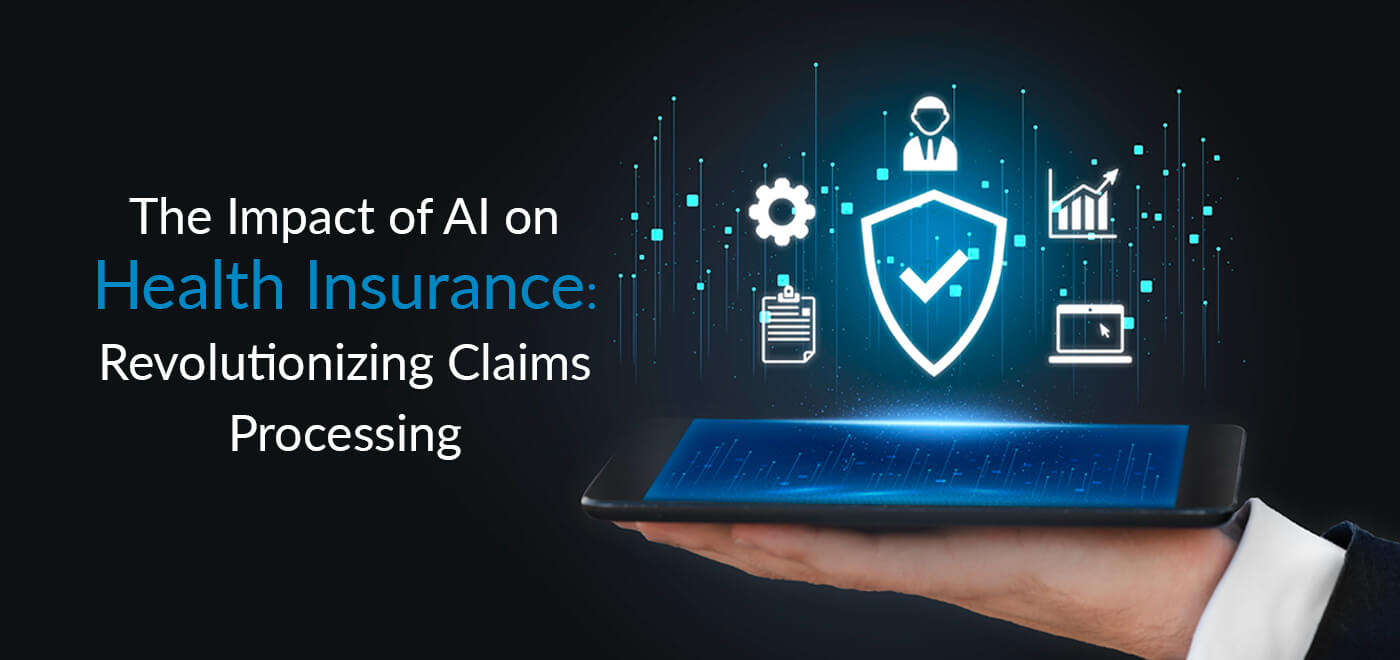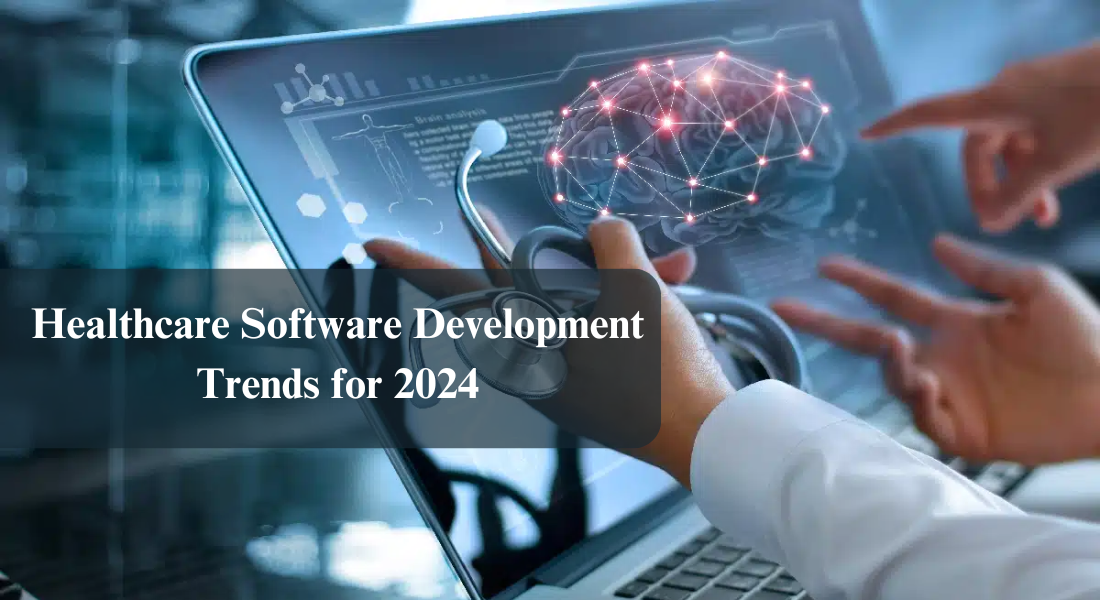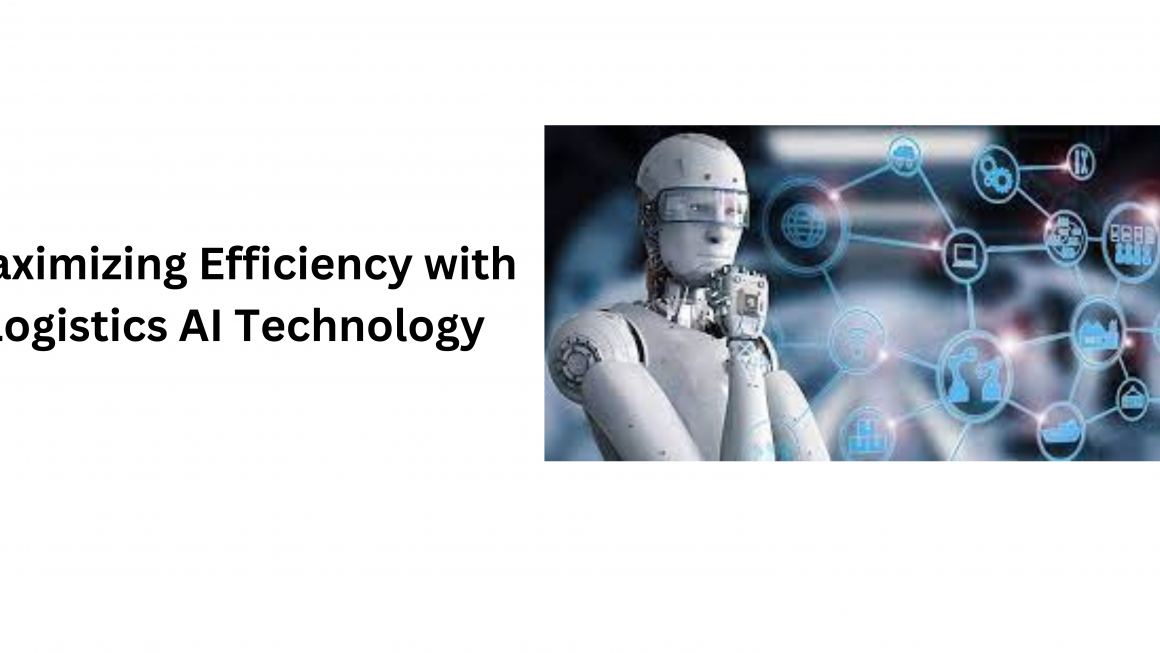Health insurance is a type of coverage that pays for medical and surgical expenses incurred by the insured individual. This industry, however, has faced numerous challenges over the years. It has dealt with issues such as rising healthcare costs, fraud, lengthy claim processing times, and a lack of personalization in insurance plans. But there’s a new player in town that’s poised to transform this landscape: artificial intelligence, often simply known as AI.
AI, or artificial intelligence development company, has become a buzzword in recent years, and for good reason. It refers to the simulation of human intelligence processes by machines or computer systems. These processes include learning (the acquisition of information and rules for using it), reasoning (using those rules to reach approximate or definite conclusions), and self-correction. In simple terms, AI enables machines to think and learn like humans but at an incredibly faster pace. AI in health insurance is a relatively newer term that has recently come into being and is transforming how healthcare industries operate.
The Emergence of AI in Healthcare
AI is not something we’ve just come across. Over the years, it has grown and found its way into many industries, altering the way businesses function. It’s like a master conductor, directing the performance of digital change in various sectors like manufacturing, customer service, finance, and retail.
Moreover, Consider retail, for example. AI has altered the way businesses understand what their customers want by introducing health insurance software for brokers. By studying vast amounts of data, AI systems can guess what’s going to be popular, alter prices as needed, and even suggest products to customers. In finance, AI comes in handy for tasks like automatic trading, spotting fraudulent activity, and answering customers’ questions through chatbots.
AI Steps into Health Insurance
Yet, it’s the meeting point of AI and health insurance that stirs up a unique set of health insurance enrollment software. Health insurance, typically dependent on human effort and decision-making, is now embracing AI. And it seems there’s no turning back.
AI stepping into the world of health insurance is like a breeze of fresh air. It brings along the chance for smoother procedures, faster decision-making, and a generally improved experience for insured folks.
Early Adopters of AI in Health Insurance
Several companies have seen the value of AI in health insurance and are leading the way in this field. One such example is a US startup called Lemonade. They use AI to handle insurance claims instantly, cutting down waiting periods and boosting customer satisfaction.
Then we have Prudential, a big name in global insurance, which uses an AI-driven chatbot to answer customer queries and offer advice on insurance plans. Their chatbot, named “Ask Pru”, gives immediate responses and gets better with every interaction.
Oscar, another US health insurance startup, uses AI differently to provide personalized healthcare plans. It uses personal health data and machine learning to give custom suggestions, ensuring each customer gets a plan that suits them.
These early birds of AI in health insurance are laying the groundwork for a future where health insurance isn’t just about covering financial risk. It’s about improving healthcare results and user experiences. As more health insurance providers see the value of AI and move to include it in their services, the future certainly looks bright.
AI in Health Insurance
AI’s job in health insurance is big and changing. It makes jobs simpler, shapes plans to fit individuals, and boosts the whole health insurance system. Think about the way insurance claims usually work. They need a person to check them, which can lead to mistakes and long delays. AI in insurance claims can handle this job instead, making it more accurate and fast. It can swiftly check the details, approve the claim, and set the right payout, all while lessening the chance for scams. That’s not everything, though. In addition, AI also allows health insurance firms to make personalized plans. It checks a lot of health data to measure individual health risks right, letting insurers give tailored policies that fit the unique needs of every client.
Different Forms of AI Used in Health Insurance
AI in health insurance is changing the narrative with Machine learning, a part of AI that uses formulas to learn from data patterns and make choices. In health insurance, machine learning can spot patterns in claims data to catch fraudulent acts or predict future costs.
Another type is natural language processing (NLP). NLP lets computers understand human speech, and it’s the tech that makes AI chatbots work. In health insurance, AI chatbots can deal with customer questions, give advice, and even guide customers when they file a claim.
Then there’s predictive analytics, an AI type that checks present and past data to guess what will happen in the future. It’s like having a data-based crystal ball. It lets insurers guess health risks and change their policies as needed.
AI’s Potential Impact on Health Insurance Industry
The possible changes AI could make to the artificial intelligence development companies are big. AI can automate boring tasks, greatly cutting administrative costs and speeding up jobs. Its ability to predict can better assess risks, letting insurers create more accurate and personal insurance policies.
Furthermore, the best part about AI might be how it could better customer experience. Faster claim handling, personal plans, and 24/7 AI-run customer service are just the start. The future of health insurance, with the help of AI, seems to be more focused on users, efficient, and effective.
As we keep learning about health insurance software companies, one thing becomes clear. AI is more than a tool; it’s a game-changer that’s reshaping health insurance. As AI grows and gets better, its game-changing effect on health insurance will too.
AI and Health Insurance: Redefining Claims Processing
Traditional Methods of Claims Processing
Think about a process that’s slow and requires a lot of work. It’s packed with paperwork, manual typing, and a chance for mistakes. This paints a picture of the usual way health insurance claims are handled. Generally, after a claim is put in, an insurance agent looks over the case. They check for anything odd and make sure the claim is real. It’s a long, hard process that often leads to delays and upset for the people insured.
AI in Claims Processing
Now, think about a process where info is processed at once, unusual things are spotted quickly, and claims are settled fast. This shows the big impact of AI in healthcare insurance companies’ claim handling.
Adding AI to insurance companies’ claim handling is like going from a horsecart to a fast train. It’s quicker, smarter, and very efficient. AI can look at lots of data fast, spot dishonest patterns, and automate settling claims.
Consider AI-driven chatbots, for instance. They can help insured people through the claim process. They automate collecting data and start the claim process right away. Or think about machine learning systems that can go through lots of claim data, find patterns, and point out potential fraud.
Comparative Analysis of AI vs. Traditional Methods
When you compare AI to typical ways of insurance claim handling, the difference is clear. The typical way, with its manual review and decision-making, often leads to longer handling times and more chances for human error. On the other hand, AI provides quick analysis and decision-making, greatly cutting the time it takes to handle claims.
Also, while typical ways may struggle to spot complex dishonest patterns, AI is great at detecting unusual things in big data sets. This improves fraud detection capabilities.
In terms of customer experience, the slow and often annoying process of the typical way is no match for AI’s fast, smooth, and easy-to-use approach. It’s like comparing a snail’s speed to a cheetah’s.
Using AI in insurance companies isn’t just a tech upgrade. It’s a complete change of the usual claim handling system. It shows how AI is shaking up the health insurance industry, especially in claim handling. As we move forward, the role of AI is likely to grow and continue to improve the experience for both insurance companies and their customers.
The Role of AI in Streamlining Claims Processing
When we look at how AI helps with health insurance, mainly in claims, we see big changes. AI has turned a hard job into a quick, easy, and correct task.
When someone sends a claim, AI rules start working fast, going over lots of data in no time. They check if the claim fits the policy, confirm details, spot problems, and even find fraud. It’s like having a quick, sharp detective on the job.
Moreover, AI’s knack for dealing with lots of data means it can offer useful tips for future policy choices. For example, trends spotted by AI can help insurance companies guess claims, tweak premiums, and handle risks better.
Role of AI in Reducing Errors in Claims Processing
The phrase “to err is human” is very true when it comes to insurance claims. The old manual way often makes mistakes that can lead to wrong claim denials or fraud payouts.
That’s where AI comes in. With its accuracy and speed, AI plays a big part in cutting down errors in claims. It’s like swapping a hand-drawn sketch for a laser-guided design. AI rules make sure every detail is checked, every issue is noted, and every choice is backed by a full data study.
AI’s regularity also helps reduce errors. Unlike people, AI doesn’t get tired, doesn’t have off days, and doesn’t miss details. The end result is a more correct, dependable claims system.
How AI Enhances Fraud Detection in Health Insurance
Role of AI in Identifying and Mitigating Fraud
Catching health insurance fraud is like a game of cat and mouse. The scammers get smarter, so the ways to catch them must also improve. This is where “AI in health insurance” comes in as a game changer.
AI can quickly sift through heaps of claims, spotting patterns, seeing oddities, and calling out possible fraud. It’s like having a super magnifying glass that can spot a tiny blip in a huge picture.
AI doesn’t just spot fraud – it also helps lower it by giving insurance companies the tools to study and grasp fraud patterns. It’s like guessing the mouse’s next move in our cat-and-mouse game. With these patterns understood, companies can act ahead of time, polishing their fraud-spotting skills and making insurance safer.
AI’s Contribution to Personalized Health Insurance Plans
Ever tried wearing a one-size-fits-all shirt? It’s usually too big, too small, or just not comfy. Health insurance plans can feel the same. They’re usually fixed, ignoring your unique needs and situation. That’s where tailored health insurance plans come in – they’re like custom-made outfits, fitting each person just right.
Tailored health insurance plans think about the different needs and health conditions of people. They give custom-made coverage, rates, deductibles, and more. Basically, it’s a health insurance plan that puts you at the heart, giving you a plan as unique as yours.
How AI Contributes to Personalized Insurance Offerings
So, how does AI help here? Like a skilled tailor uses exact measurements to make a bespoke suit, AI in health insurance uses data to give tailored insurance offers.
AI can process loads of data fast and accurately. It can consider many factors. It checks out medical history, lifestyle choices, genetic data, and more. With these insights, it can give a precise and personal health insurance plan, one that fits like a glove.
Also, AI doesn’t just help in making plans. It helps in checking and updating them too. For example, it can keep an eye on the health of insured people and suggest plan changes based on new information. It’s like a tailor who alters your suit as you lose or gain weight, making sure it fits perfectly all the time.
Future Perspectives: AI in Health Insurance
Think about our world tomorrow. A place where tech and daily life are closely linked, with AI playing a big part. The future of AI in health insurance is set to bring about major changes.
AI will most likely shape even more tailored health insurance plans, using data in new ways. Imagine insurers using AI to track real-time health stats from fitness trackers, changing cover and costs based on a person’s lifestyle.
But it’s not just about tailoring. AI’s knack for predicting could help insurers forecast health trends, maybe spotting health risks before they become big issues. This forward-thinking could lead to better health results and cost savings for both insurers and customers.
Also, AI is set to make admin tasks smoother. Auto claims handling, policy management, and customer service chats can save time and cut costs. Health insurance software firms are already creating smart AI tools, and we can see this trend going on.
Possible Challenges in Implementing AI
Despite its potential, bringing AI in health insurance has its snags. One issue is data privacy. While AI needs a lot of data to work well, this sparks worries about how to safeguard personal health data. Insurers will need to strike a balance between using data for AI and respecting privacy rules and ethical guidelines.
Another challenge is melding AI systems with current structures. Shifting from old systems to AI-powered ones can be tricky, long, and costly. Insurers will need to help their teams learn how to handle these new technologies.
Opportunities Created by AI in the Health Insurance Industry
Even with these hurdles, the chances AI gives the health insurance field are massive.
AI can help insurers create better risk models, possibly cutting fraud and reducing costs. Moreover, AI could reveal new insurance goods and services. For instance, insurers could offer health coaching or wellness programs based on AI analysis of health data.
Moreover, AI could bridge the gap between insurers and customers. By making chats more efficient and tailored, AI could boost customer happiness and loyalty.
To sum up, AI’s role in health insurance is set to expand. While there are hurdles to tackle, the chances are game-changing, with the power to reshape the industry for the better. And as we look ahead, one thing is clear: AI isn’t just a tech fad. It’s a major part shaping the future of health insurance.
Conclusion
Lastly, having journeyed through the field of AI in health insurance, it’s time to recall the main ideas we’ve looked at. Moving from classic health insurance methods to those driven by AI marks a big change. AI has improved how we process claims, made admin tasks simpler, and brought a new wave of tailored health insurance plans. It’s also made spotting fraud easier, making the insurance world safer for real claimants.
Besides AI’s huge influence, it also affects businesses that provide health insurance as a worker perk. AI-backed platforms from Employee Benefits Solution Providers simplify managing and fine-tuning health insurance services. What’s more, you may ask, but AI’s role doesn’t end there. We’ve delved into how AI could reshape health insurance’s future, even with potential hurdles.
Reflection on the Importance of AI in Revolutionizing Health Insurance
Finally, grasping the role of AI in health insurance is like viewing a coin with two sides. One side shows an efficient, personalized, and safe insurance environment. On the flip side, worries about data privacy and integration problems exist. Yet, the pros often outweigh the cons if we handle the change thoughtfully and fairly.
We can’t ignore AI’s big role in changing the health insurance world. From a business angle, it means cost cuts, better efficiency, and fresh offerings. For customers, it means tailored policies, faster claims handling, and a clearer experience.
Moreover, in a world where tech touches every part of our lives, AI isn’t just an option for health insurance – it’s a must-have. AI’s potential to uplift and change the health insurance experience can’t be denied.
As we finish this section, let’s look forward to a future of health insurance guided by AI. No matter if you’re an insurer, a policyholder, or a firm wanting to boost your worker perks, the AI revolution in health insurance has something for you.
Don’t get left out in this AI-driven shift. Welcome the future of health insurance today with Toporgs!
FAQs
Artificial Intelligence, or AI, refers to the simulation of human intelligence in machines that are programmed to learn and mimic human actions. When applied to health insurance, AI can automate and improve various processes – from customer service to claims management, fraud detection, and personalization of plans.
AI simplifies claims processing in health insurance by automating manual tasks and reducing processing times. It achieves this through advanced data analysis, predictive analytics, and machine learning algorithms. These tools help in accurately assessing claim legitimacy, thus speeding up approvals or flagging potential issues for further investigation. In essence, AI aids in making claims processing more efficient, accurate, and timely.
AI enhances fraud detection in health insurance through intelligent data analysis. It can identify patterns, anomalies, and correlations within large sets of data that a human might overlook. For instance, AI can detect suspicious claim patterns, repeated claims from a single source, or unusually high claim amounts.
Implementing AI in health insurance isn’t without its challenges. Data privacy is a significant concern as sensitive health information is involved. Ensuring that AI systems comply with privacy regulations and secure data from breaches is crucial. Additionally, the integration of AI technology with existing systems might pose challenges in terms of compatibility and resource allocation.
AI offers myriad opportunities for the health insurance industry. It promises increased efficiency, reduced costs, and improved customer satisfaction. With AI, insurers can design personalized insurance products, deliver superior customer service, and streamline internal processes.




